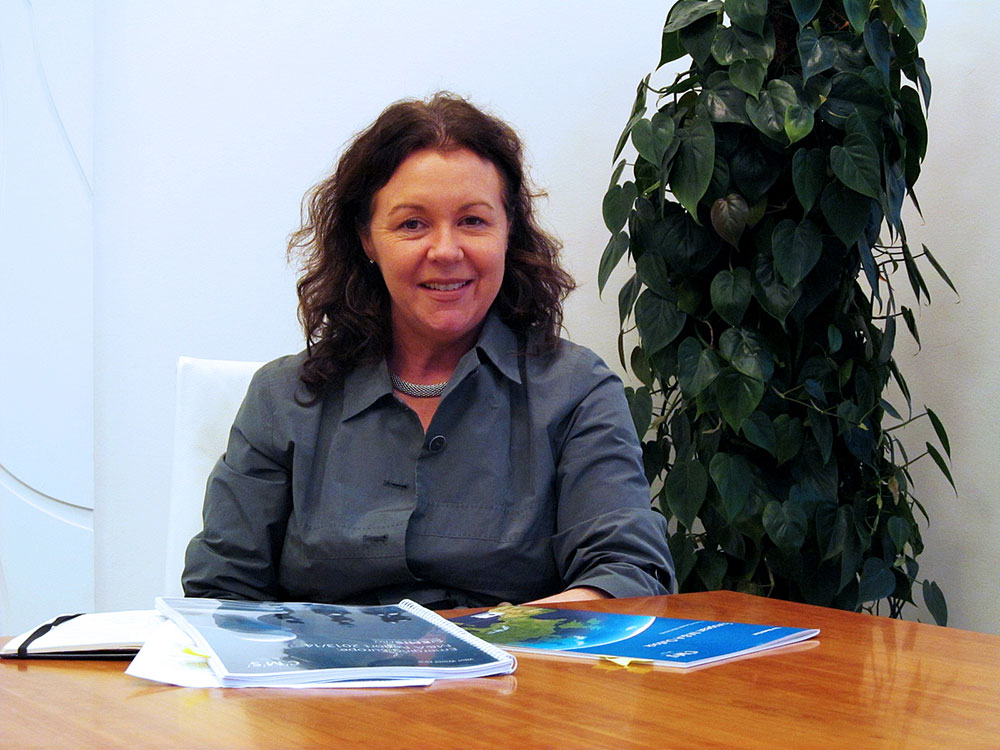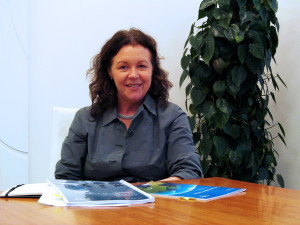As a corporate lawyer who specializes in mergers and acquisitions, there can be few more exciting projects than the privatizations that take place when a country moves from a planned to a market economy. Helen Rodwell, managing partner of the Prague office of the law firm CMS Cameron McKenna, where she directs a team of about 60 people, of whom around 35 are lawyers, was involved in a string of such deals, helping to privatize banks such as Česká spořitelna.
In the late 1990s, while based in London, she came out to help with a series of projects involving everything from banks to an industrial plant in Ostrava, before moving here in 1999. A decade and a half on, CMS has moved into other countries in the region, and Rodwell now also heads CMS’s corporate practice group in Central and Eastern Europe.
When acting for a client looking to make an acquisition, she and her colleagues will typically go into a company and assess if there are any risks the purchaser should be aware of, negotiate transaction agreements and carry out work related to, for example, regulatory approvals and financing during the months it takes for a purchase to be completed.
Reporter Daniel Bardsley in Prague sat down with the mergers and acquisitions (M&A) specialist to hear more about privatizing banks, the financial crisis and why she is keen to remain in the region.
How did you come to be based in Central Europe?
I agreed to move here in 1999, so I took all my belongings — my bicycle, my books, a few suits and not much else – originally to do a secondment for two years. It was that period of lots of privatizations and CMS saw the need to have an international lawyer here full-time. Here I am, 15 years later.
How were things different back in the late 1990s?
[Officials were] just less experienced in mergers and acquisitions than they are now. The regulators were less sophisticated. There was little established practice and the people we dealt with in the government often needed a lot of help in how to structure the process. Now, the officials at the Czech National Bank are some of the most professional people you meet in business anywhere.
What trends in M&A activity emerged during the economic slump?
Over the period of the financial crisis, there’s been quite a number of foreign investors exiting or looking to exit the Czech Republic. That’s been for a variety of reasons. It’s a relatively small market, so it’s often not seen as a core market for multinational companies. When the going gets tough and people need to reassess where their core assets are, the Czech Republic will often throw up what is seen as a non-core asset. At the same time, there’s been a number of big local players – [the investment groups] PPF, Penta, J&T, EPH – these big local groups, Czech or Slovak, that have been very acquisitive across all sectors. The ownership profile has seen more foreign sellers and more local buyers than prior to the financial crisis.
Do you expect the foreign buyers to return?
I think so, although I don’t think it will happen in the next couple of years. Once people are looking to invest or make acquisitions, I’m sure they will come back. The opportunistic buyers, they will eventually want to [sell] their assets. It’s not that there’s been anything particularly wrong in the assets that have been sold. [One client] had some excellent assets but they were looking to sell them to free up some cash for other parts of their business that were struggling. Their assets were being sold because the Czech Republic wasn’t seen as a key market for them.
Has there been much sign of an increase in M&A activity along with the upturn in the economy?
The market was relatively sluggish for quite a few years during the financial crisis. People were keen to buy and sell, but lots of deals didn’t happen. The Czech and Polish markets have remained the most active for deals, but since summer 2013, there has been a marked increase in activity. We’ve seen deals actually signed. We’ve got a few deals that will close relatively soon. That’s not just us; generally speaking the market has picked up. People were sitting on their hands for some time waiting for the crisis to end, but it seemed in summer 2013, various people decided they had to get on with this and sell or buy. There does seem to have been a lot of movement. Speaking to my core colleagues in Europe, they’ve been experiencing the same thing. People are cautiously optimistic we’ve turned the corner and M&A is recovering quite quickly.
When M&A activity was depressed during the financial crisis, did your office manage to remain busy?
Fortunately our business is quite diversified. If there’s a downturn in M&A, there’s an upturn in the litigation department; people aren’t buying and selling, they’re suing each other for what they bought and sold a few years ago. Our banking and financial [lawyers] have been doing a lot of restructuring of debt or restructuring of groups driven by the banks. Our business is structured to cope with upturns and downturns. It’s really just been a shift in where we dedicate our resources and what transactions the team are working on.
After being in the region for a considerable period of time, are you keen to move on?
It’s still very exciting. There are still lots of challenges and probably I have developed some expertise in doing deals in this part of the world. There are cultural sensitivities you need to have done a few of them to understand. I would lose that if I moved to, say, Australia or China. I have always moved around Central and Eastern Europe to different jurisdictions. I did lots of work in Romania and Bulgaria. I did a lot of deals in Ukraine. Working on a regional basis, it’s been challenging and interesting. I go somewhere every week or every other week. Next week I’m in Bucharest, the week after in London.
The Rodwell file
Name: Helen Rodwell Age: 45
Nationality: Australian Current position: Managing partner, Prague office, CMS Cameron McKenna (since May 2012). Also is head of corporate practice group in Central and Eastern Europe. Has worked for CMS since 1996.
Education: Economics degree and law degree with honors, Monash University, Melbourne. Admitted as a solicitor and barrister in Australia.








